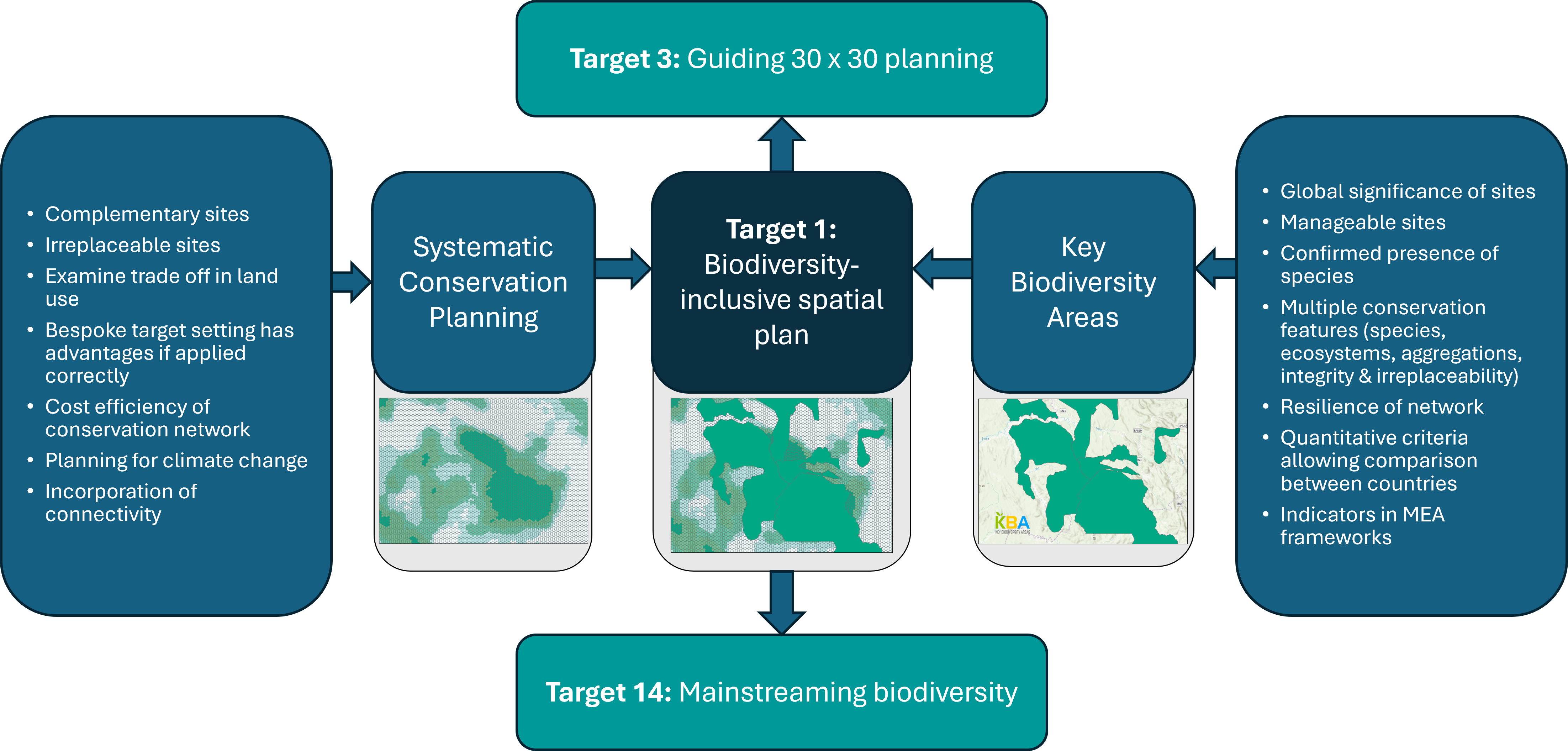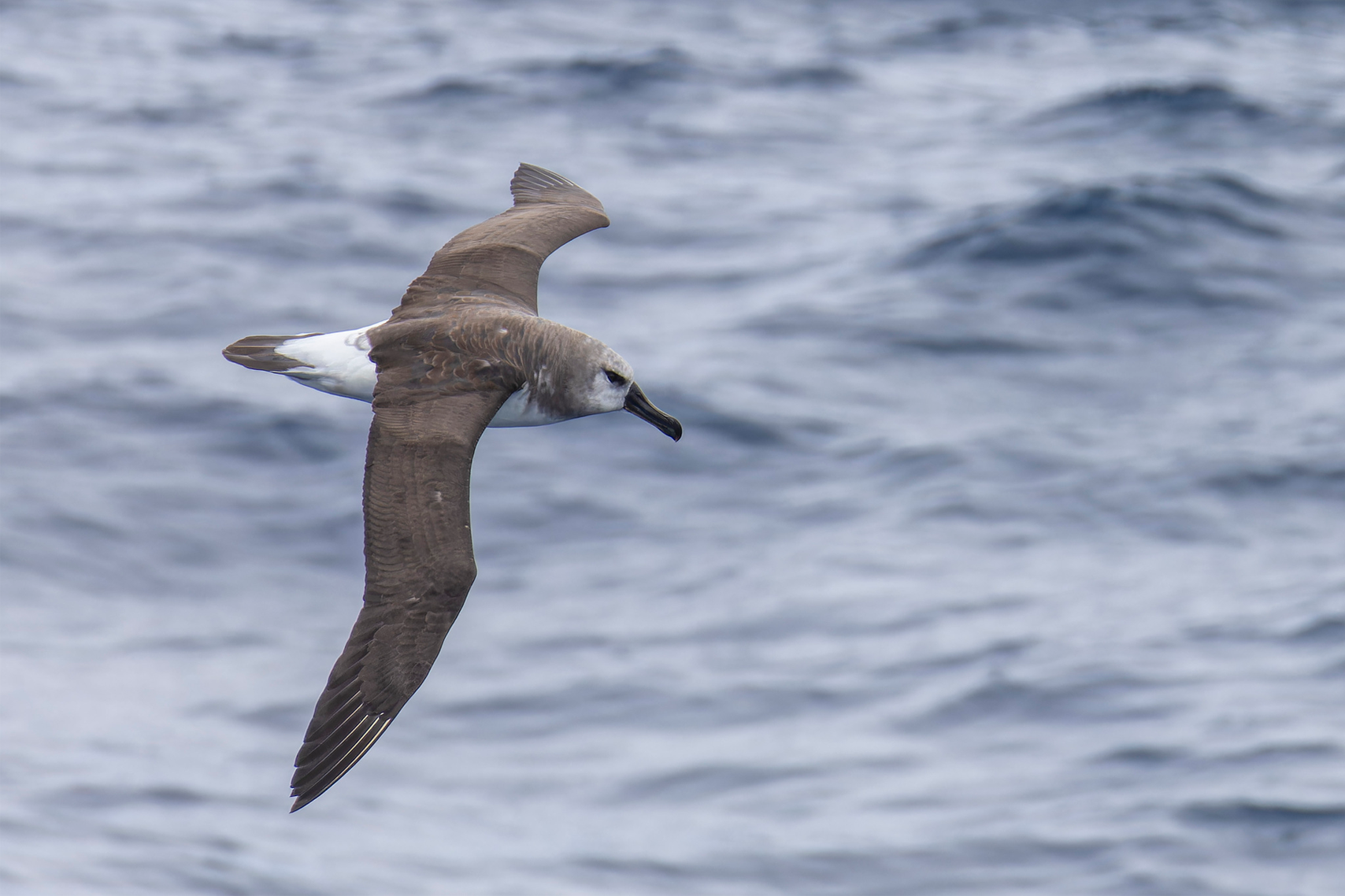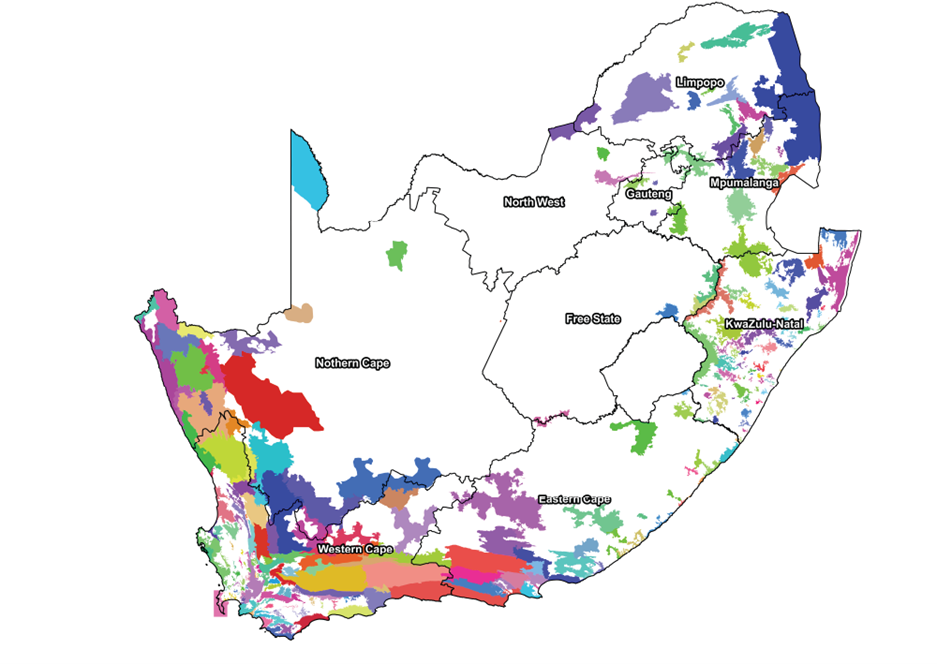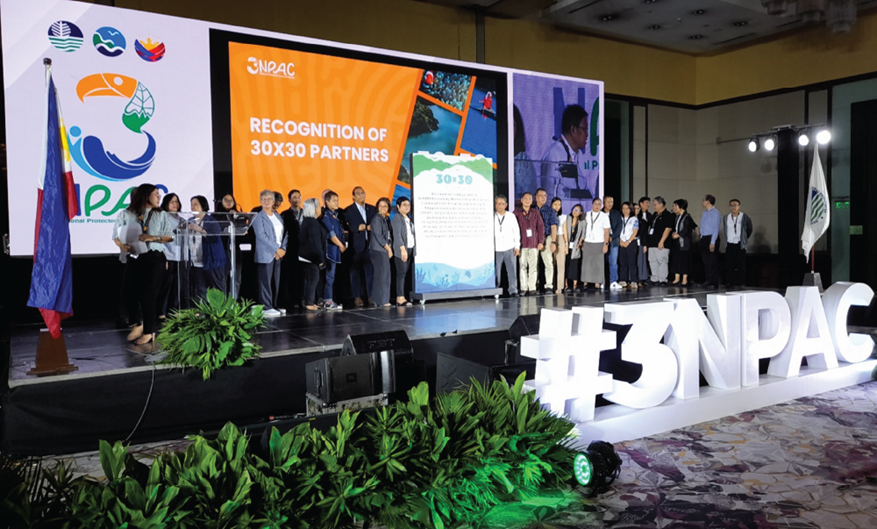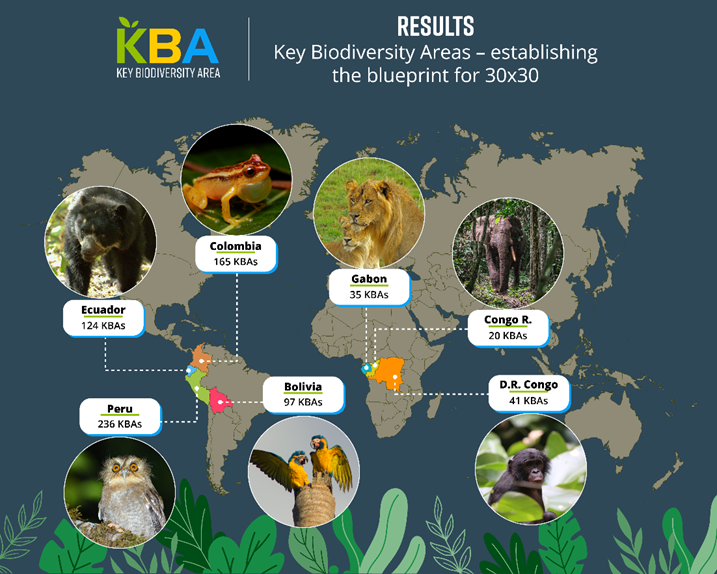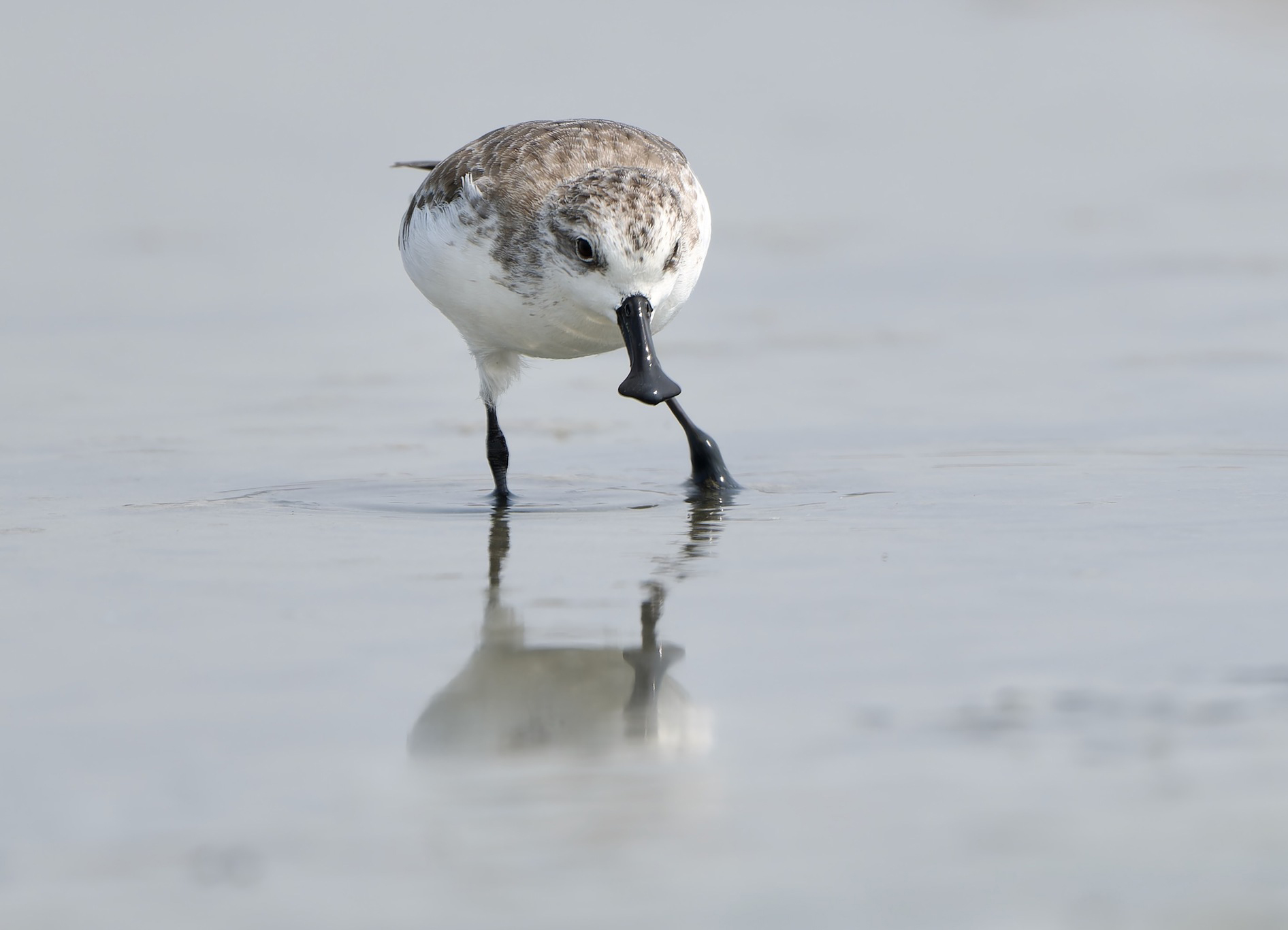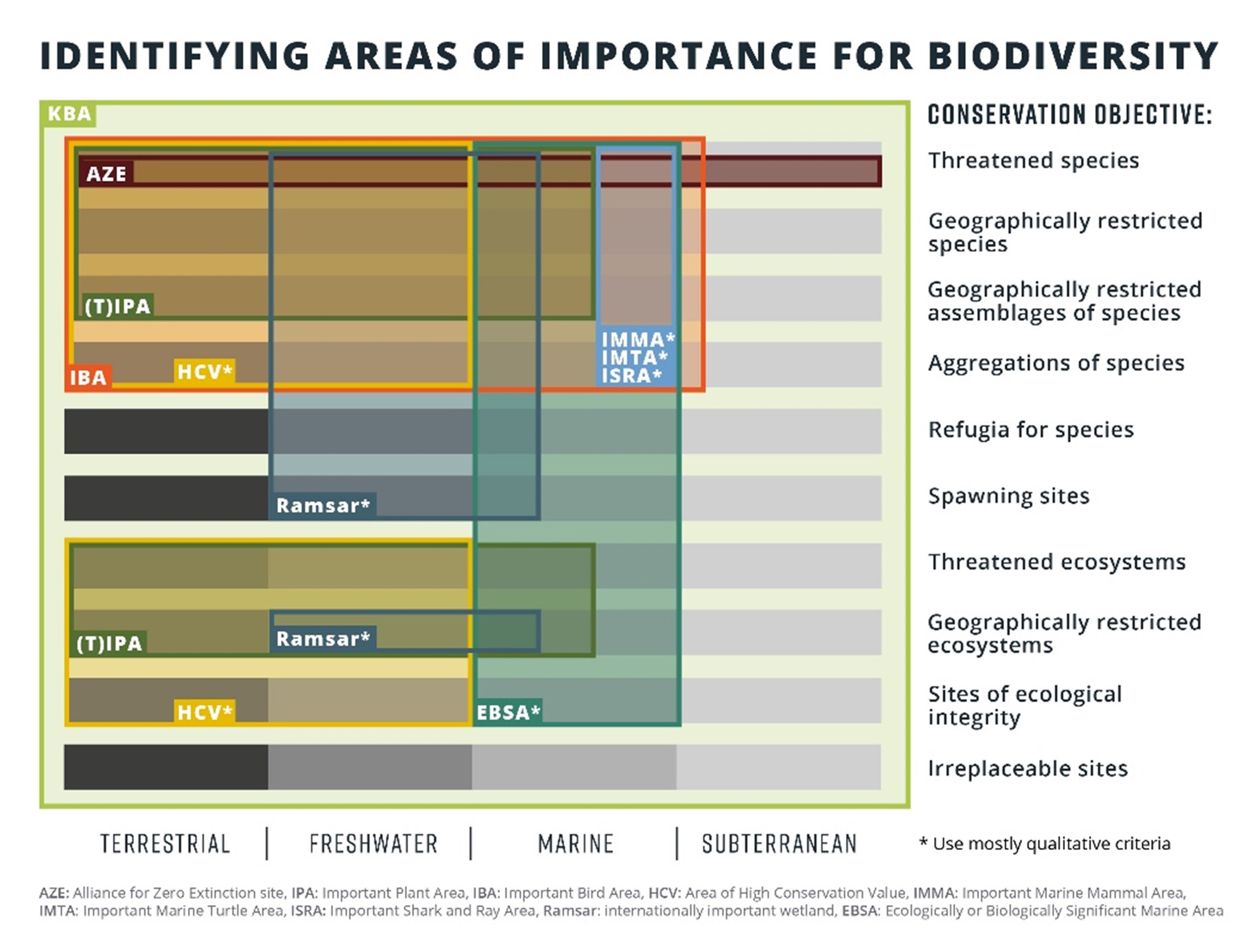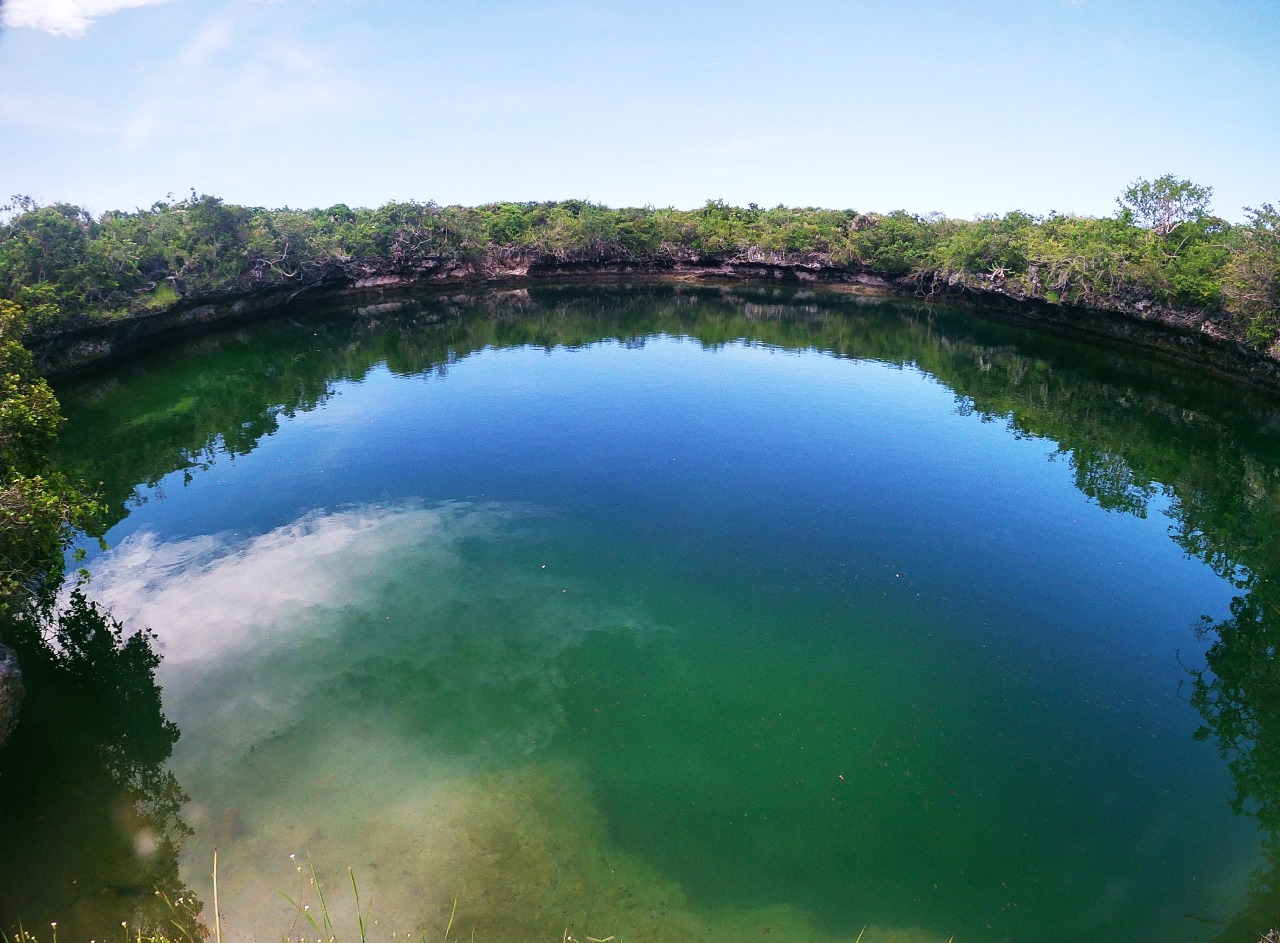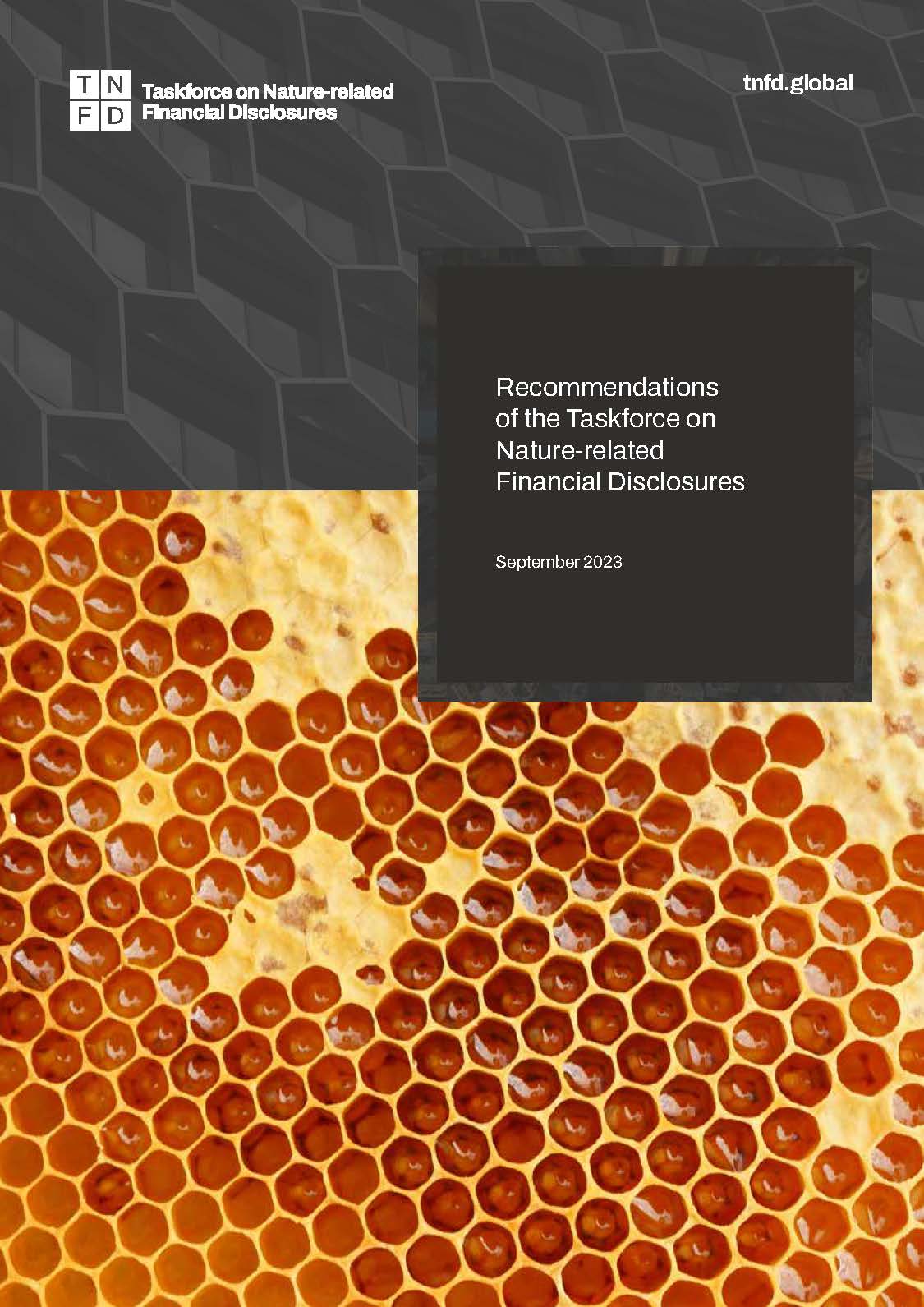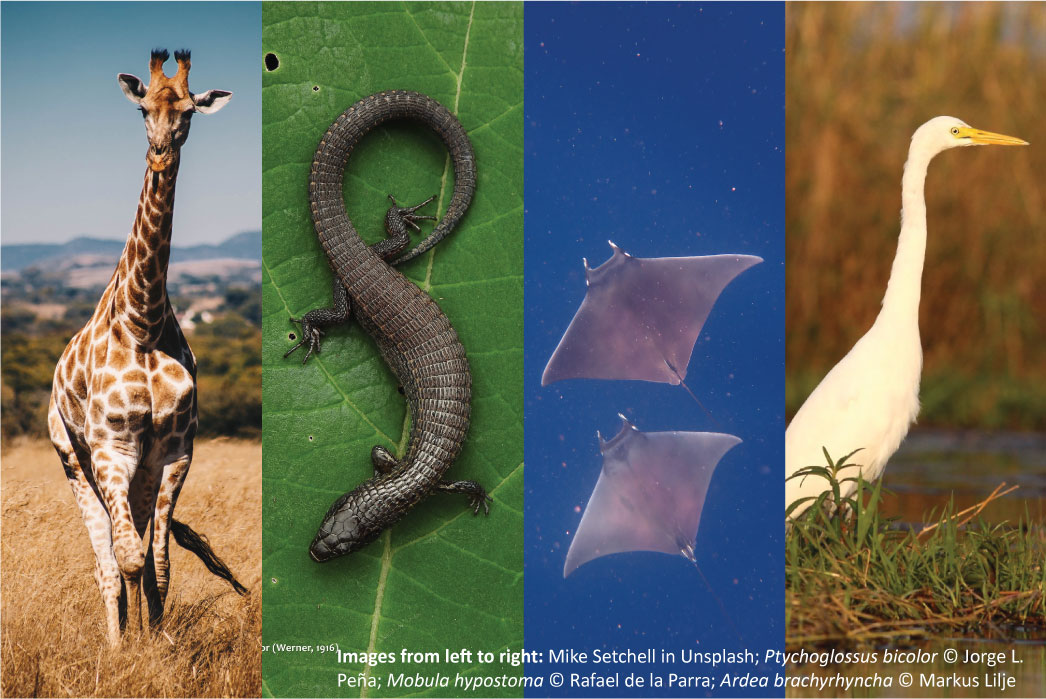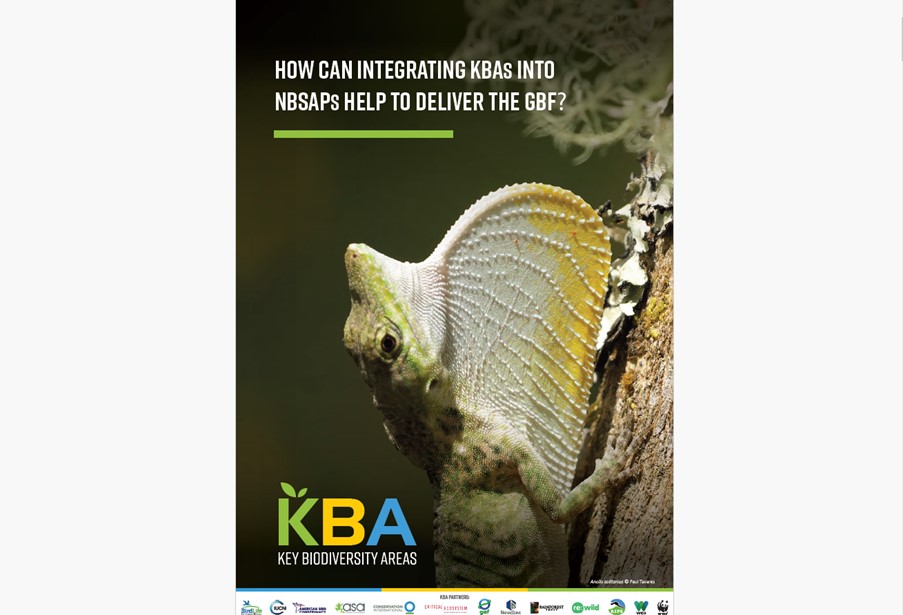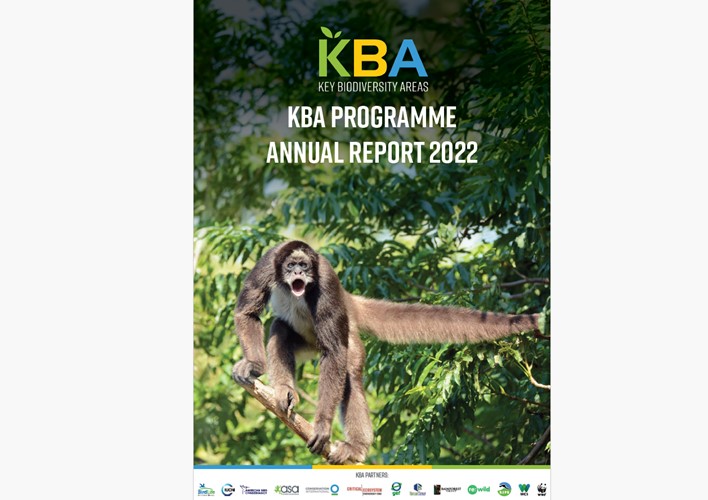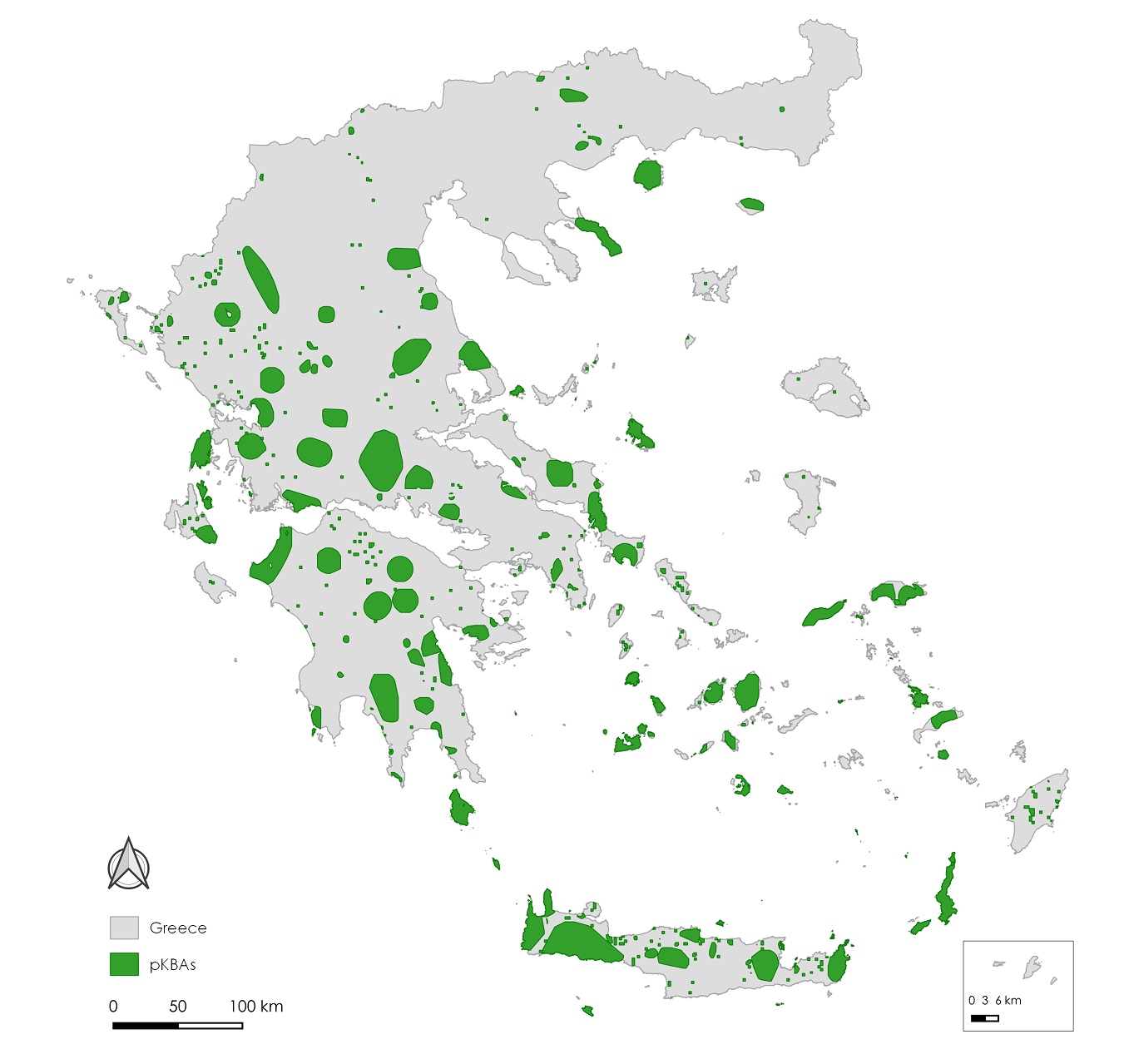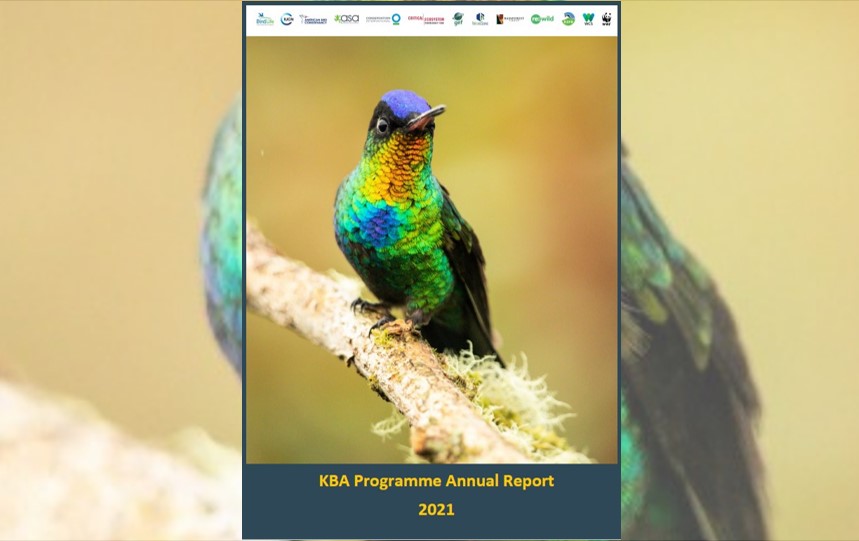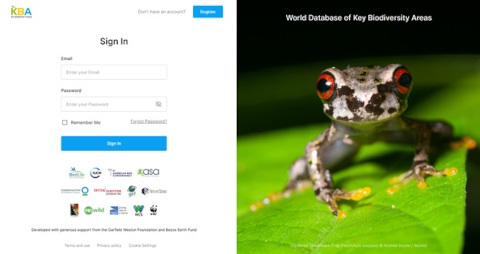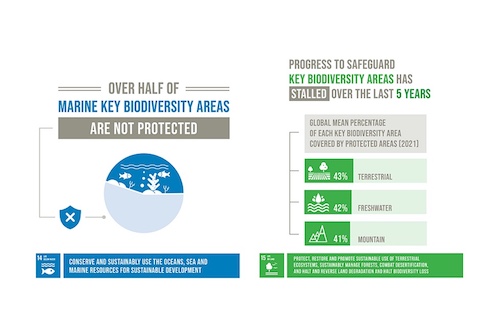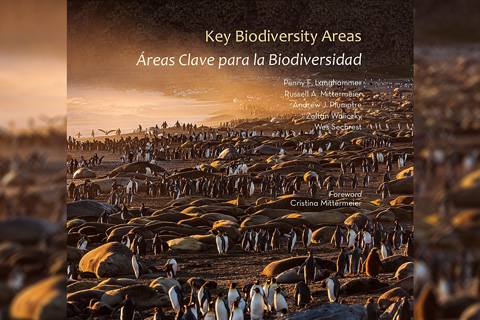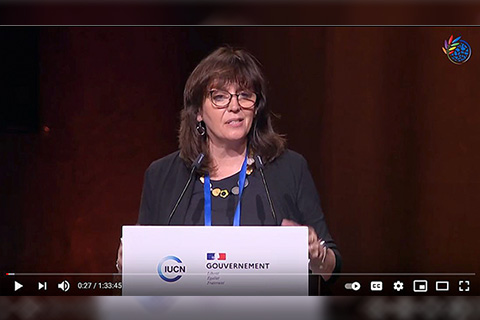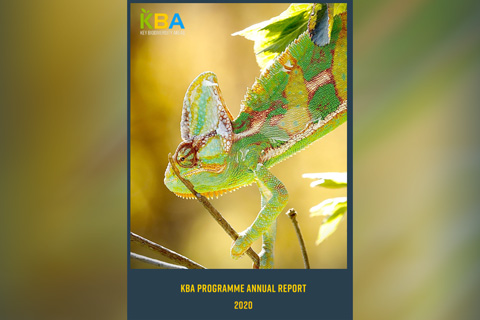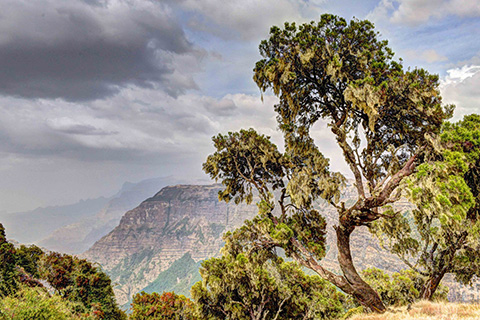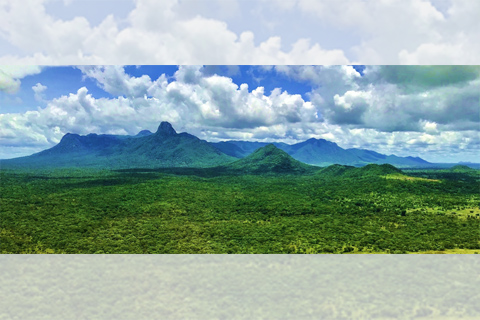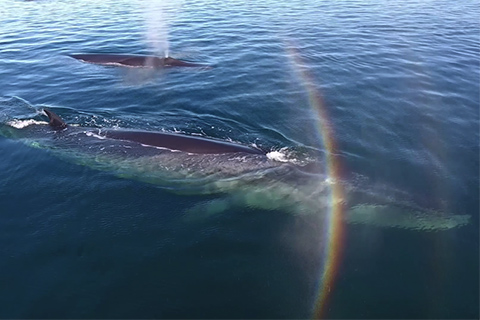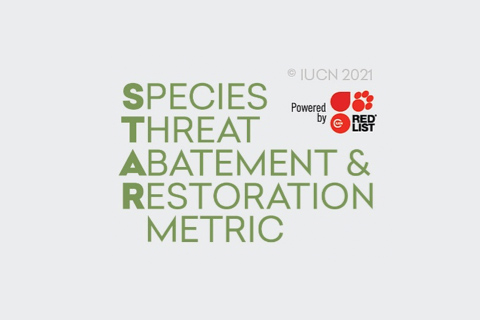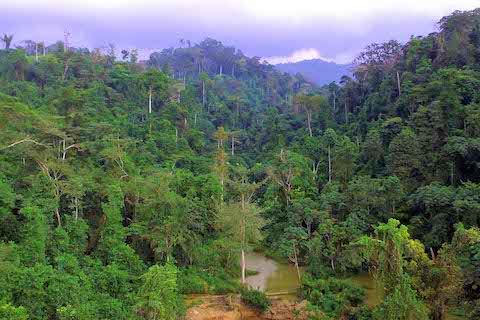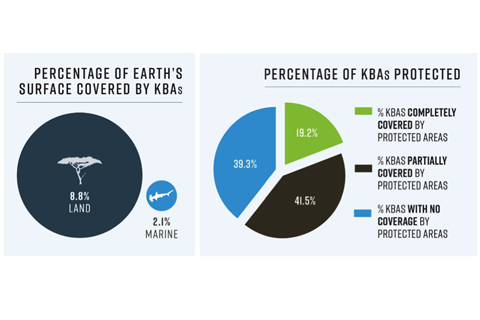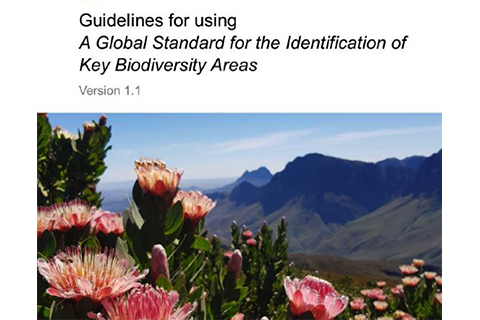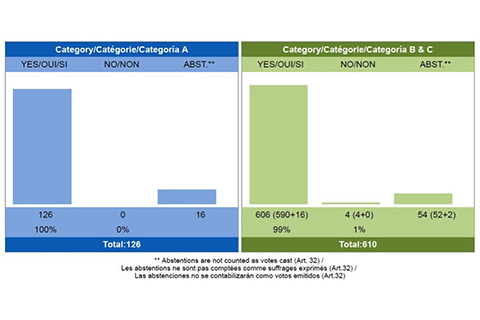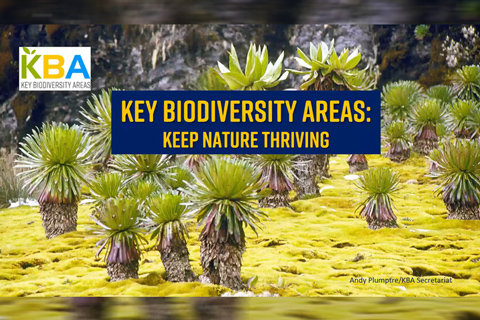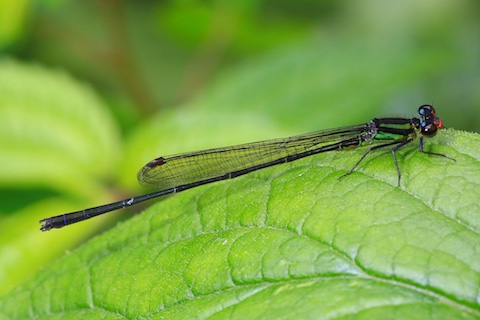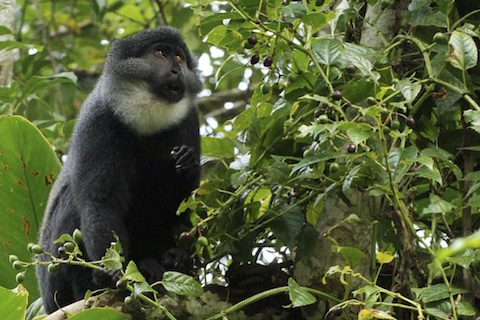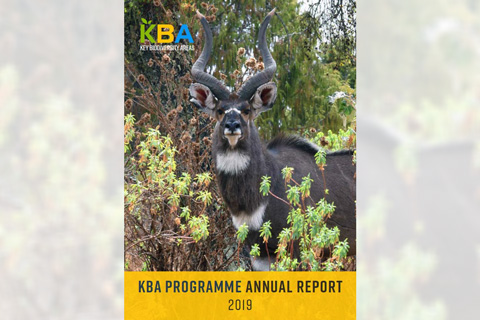kajornyot wildlife photography
Key Biodiversity Areas News
Find out the latest updates from the KBA Secretariat and read the Newsletters here
A recent study identifies ways of strengthening national spatial planning methods, a critical component of the Kunming-Montreal Global Biodiversity Framework (KMGBF).
A new publication offers a detailed overview of Gabon's 35 KBAs and the 188 rare and threatened species that triggered them. It also uncovers the main results of the Bezos KBA Project, the methodology used, and addresses the next steps to ensure the conservation and monitoring of the sites.
Opportunities to identity Key Biodiversity Areas in the Southern Ocean through animal tracking data.
A recent study has identified potential Key Biodiversity Areas (KBAs) in the Southern Ocean, through tracking data from seabirds and seals.
The South African National Biodiversity Institute and BirdLife South Africa reassessed Key Biodiversity Areas (KBAs) in South Africa to align with global standards. This process, which started in 2017, identified 263 terrestrial KBA sites and will continue to include marine sites and updates.
The 3rd National Protected Areas Conference in Manila brought together conservation practitioners to discuss their work in conserving the country's protected areas and engaging with the Global Biodiversity Framework (GBF). The conference included a session on planning for 30% conservation by 2030 (30x30) under target 3 of the GBF.
719 KBAs confirmed, with two world first of its kind KBAs are some of the incredible results of the Bezos KBA Project, an ambitious project aimed at safeguarding the biodiversity of two of the most biologically diverse regions in the world: the Congo Basin and the Tropical Andes.
State of the Worlds Migratory Species Report Highlights the Need to Increase Protection Coverage of Key Biodiversity Areas.
The Kunming-Montreal Global Biodiversity Framework aims to halt extinctions, reduce biodiversity loss, and protect 30% of the planet by 2030. However, it lacks a clear definition of 'areas of importance for biodiversity', which could potentially hinder effective conservation. A recent paper in 'One Earth' proposes a definition to enhance the implementation of the Kunming-Montreal Global Biodiversity Framework.
A recent study published in the International Review of the Red Cross found that Key Biodiversity Areas (KBAs) are disproportionately located in or near areas of armed conflict, refugee settlements, and UNHCR activities.
In 2021, the Ministry of Land and Environment (MTA), in partnership with WCS, officially launched 29 Key Biodiversity Areas (KBA) in Mozambique. In this process, an additional 15 areas, including Pemba Bay, Memba-Mossuril, showed potential to become KBAs.
The recent publication of the Taskforce on Nature-related Financial Disclosures (TNFD) final Recommendations recognises the insights the Key Biodiversity Areas (KBAs) dataset can provide businesses when assessing how their operational footprints and value chains interact with globally significant sites for biodiversity.
As part of the latest update of the World Database of KBAs, released in September 2023, a total of 224 sites were updated, including 117 that were assessed or reassessed.
We recently released a document that can guide governments in how they can use KBAs to meet some of the targets and indicators of the GBF.
The recently released Annual Report 2022 of the Key Biodiversity Areas (KBA) Programme showcases the significant progress made in identifying and conserving globally important sites for biodiversity.
A workshop held in Lahore, Pakistan with representatives of national and provincial governments has agreed to move forward to establish a KBA National Coordination Group and make a comprehensive assessment of the country’s KBAs.
Greece has become the first European country to recognise Key Biodiversity Areas in its laws and policies
The KBA Partners have released their annual report for 2021. In this document you can read about new developments in the World Database of Key Biodiversity Areas together with new tools that have been developed to help KBA Proposers apply the KBA criteria.
On the 22 June 2022 in Beijing China, the China Key Biodiversity Areas National Coordination Group (KBA NCG) was formally established with support from IUCN China and the SEE Foundation.
World Database of Key Biodiversity Areas: a comprehensive new database for the management of areas of importance for biodiversity
The technical course is aimed at building relevant knowledge and skills among KBA practitioners and experts.
The United Nations 2021 annual report notes some recent success stories in conserving KBAs and highlights the slow progress in achieving overall safeguard.
A new book ‘Key Biodiversity Areas’ was launched at the World Conservation Congress.
One of the main sessions featuring KBA identification around the world has been made available by IUCN.
KBA Partners have released their annual report about the KBA Programme for 2020.
The recent release of the first draft of the post2020 Global Biodiversity Framework has a target that 30% of land and seas should be protected.
Mozambique is one of the first nations to make a comprehensive assessment of its Key Biodiversity Areas.
Ongoing research has revealed that the Falkland Islands, are a globally important hotspot for recovering populations of endangered Sei whales.
The Species Threat Abatement and Restoration (STAR) shows how important KBAs are for achieving biodiversity targets.
Three global manufacturing leaders have expressed their concerns regarding the mining of bauxite in Atewa Range Forest Reserve.
Why KBAs should be in the CBD Targets and Indicators for the Post 2020 Global Biodiversity Framework.
Version 1.1 of the KBA Guidelines has been released detailing how to assess species and ecosystems and delineate KBAs.
Governments and civil society organisations around the world have adopted a Resolution that each country make spatially explicit conservation plans for biodiversity.
The KBA Partnership has appointed two new Co-Chairs of the KBA Committee: Dr Naomi Kingston and Dr Alberto Yanosky.
Key Biodiversity Areas were featured in the Mapping Nature for People and Planet event of the Nature for Life Hub at the UN General Assembly at the end of September.
163 freshwater Key Biodiversity Areas (KBAs) have been confirmed to meet the new Global KBA standard, led by the IUCN Freshwater Biodiversity Unit (FBU).
President Paul Biya and the government of Cameroon recently cancelled a logging concession in Ebo Forest.
The first Annual report for 2019 for this Programme has recently been published and highlights activities around the world that are identifying, mapping and conserving Key Biodiversity Areas.
